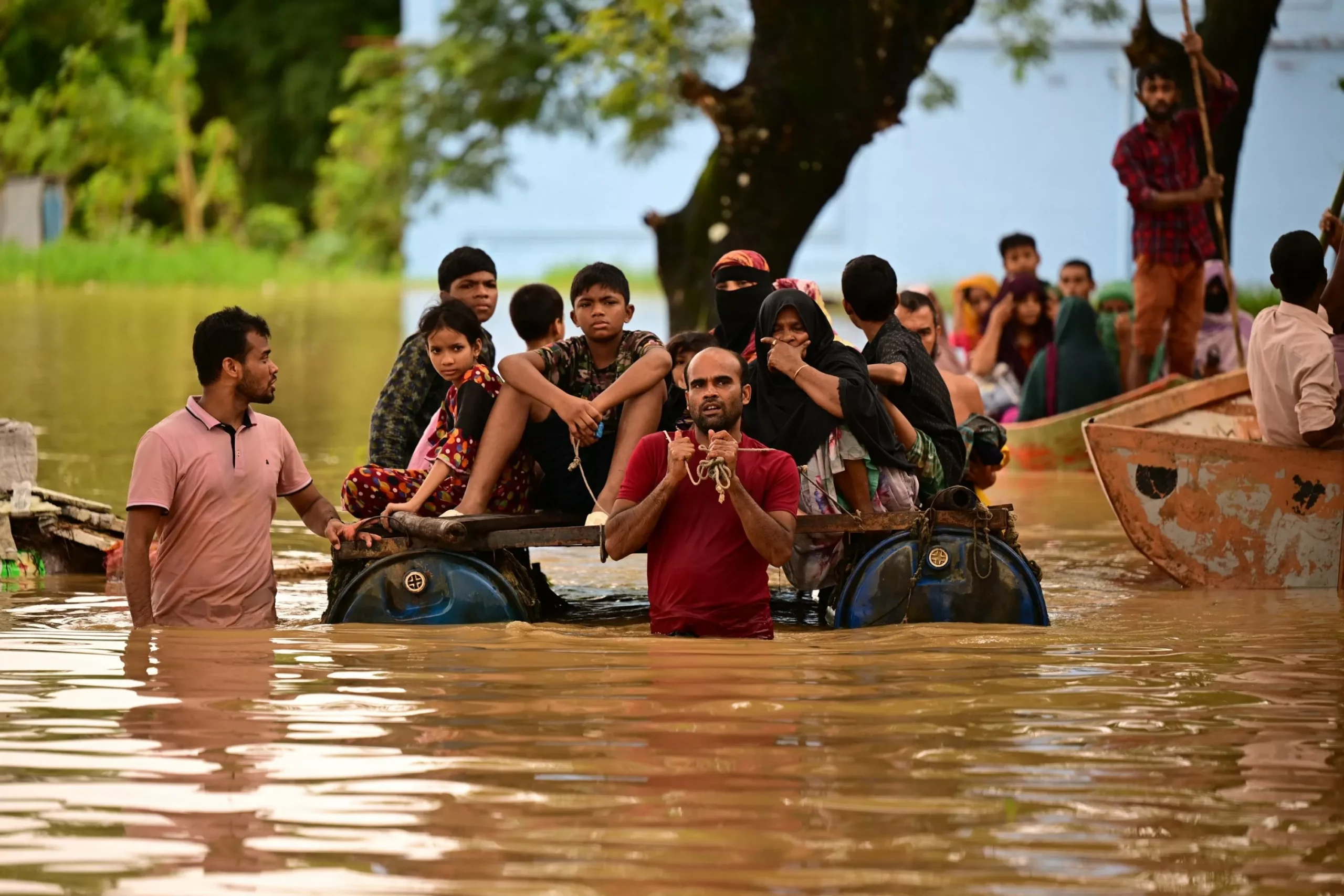Floods have once again wreaked havoc in India’s northeast and Bangladesh’s eastern region, causing widespread destruction and claiming many lives. According to officials and media reports, the death toll has risen to 30 this week, with no signs of the situation improving anytime soon.
The incessant rains have caused rivers to overflow, submerging entire villages and displacing thousands of people. The affected areas are facing severe damage to infrastructure, crops, and livestock, leaving the local communities devastated. The situation is dire, and urgent action is needed to provide relief to those affected by the floods.
The northeastern states of Assam, Arunachal Pradesh, and Meghalaya have been the worst hit by the floods, with many districts being declared as flood-prone. In Assam alone, over 1.5 million people have been affected, and the death toll has risen to 15. The state government has set up relief camps and is providing essential supplies to those affected. However, the magnitude of the disaster has overwhelmed the authorities, and more support is needed to tackle the situation effectively.
Similarly, in Bangladesh, the eastern region has been facing the wrath of the floods, with the death toll rising to 15. The low-lying areas of the country have been inundated, and the situation is worsening with each passing day. The government has deployed rescue teams and is working tirelessly to provide aid to those affected. However, the scale of the disaster is immense, and more assistance is required to alleviate the suffering of the people.
The floods have not only caused loss of life and property but have also disrupted the lives of many. The affected communities are facing immense hardships, with many losing their homes and livelihoods. The floods have also impacted the education of children, as schools and colleges remain closed in the affected areas. The long-term effects of the floods are yet to be seen, and it is crucial to provide support and assistance to help the affected communities get back on their feet.
The government, along with various NGOs and volunteers, is working tirelessly to provide relief to those affected by the floods. However, it is also the responsibility of each one of us to come forward and lend a helping hand to our fellow citizens in need. We must stand in solidarity with the affected communities and do our part to alleviate their suffering.
The floods have once again highlighted the need for better disaster management and preparedness in the region. The authorities must take necessary steps to mitigate the impact of such natural disasters in the future. This includes building better infrastructure, early warning systems, and effective evacuation plans. It is also essential to raise awareness among the local communities about disaster preparedness and the necessary precautions to be taken during such situations.
Furthermore, the floods have also brought to light the issue of climate change and its impact on the region. The increasing frequency and intensity of natural disasters like floods are a clear indication of the need to address climate change urgently. It is high time that we take concrete steps to reduce our carbon footprint and adopt sustainable practices to protect our planet.
In the midst of this disaster, there have been heartwarming stories of people coming together to help those in need. From individuals opening their homes to provide shelter to the affected, to volunteers distributing food and supplies, the spirit of humanity has shone through in these trying times. These acts of kindness and compassion give us hope and remind us that we are all in this together.
As we continue to battle the floods, let us remember that this too shall pass. The affected communities will need our support and assistance long after the floods recede. It is our responsibility to stand by them and help them rebuild their lives. Let us also take this opportunity to reflect on our actions and make a conscious effort to protect our environment and prevent such disasters from occurring in the future.
In conclusion, the floods in India’s northeast and Bangladesh’s eastern region have caused immense devastation and loss of life. It is a reminder of the need for better disaster management, climate action, and humanity. Let us come together and do our part to help those in need and build a better, more resilient future for all.





![Complete BritRail Pass Guide [Types, How to Use It, Pros + Cons]](https://inside-news.uk/wp-content/uploads/2025/06/00221EB4-BCA2-4DBB-6CD4-83DBC37D71FA-120x86.webp)
















